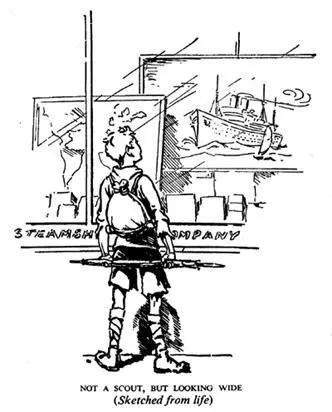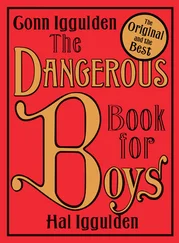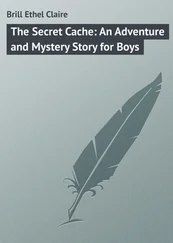Robert Robert - Scouting for Boys
Здесь есть возможность читать онлайн «Robert Robert - Scouting for Boys» весь текст электронной книги совершенно бесплатно (целиком полную версию без сокращений). В некоторых случаях можно слушать аудио, скачать через торрент в формате fb2 и присутствует краткое содержание. Жанр: Старинная литература, und. Описание произведения, (предисловие) а так же отзывы посетителей доступны на портале библиотеки ЛибКат.
- Название:Scouting for Boys
- Автор:
- Жанр:
- Год:неизвестен
- ISBN:нет данных
- Рейтинг книги:3 / 5. Голосов: 1
-
Избранное:Добавить в избранное
- Отзывы:
-
Ваша оценка:
- 60
- 1
- 2
- 3
- 4
- 5
Scouting for Boys: краткое содержание, описание и аннотация
Предлагаем к чтению аннотацию, описание, краткое содержание или предисловие (зависит от того, что написал сам автор книги «Scouting for Boys»). Если вы не нашли необходимую информацию о книге — напишите в комментариях, мы постараемся отыскать её.
Scouting for Boys — читать онлайн бесплатно полную книгу (весь текст) целиком
Ниже представлен текст книги, разбитый по страницам. Система сохранения места последней прочитанной страницы, позволяет с удобством читать онлайн бесплатно книгу «Scouting for Boys», без необходимости каждый раз заново искать на чём Вы остановились. Поставьте закладку, и сможете в любой момент перейти на страницу, на которой закончили чтение.
Интервал:
Закладка:
We no longer think of the colonies as places made for our special benefit or profit; in the past many mistakes have been made, but that is how we have had to learn the duty of being in charge of these colonies. The first consideration now is, how can we best help the peoples—whatever their colours—who live in these places?
A good example of how countries have developed under our rule is Ashanti, on the West Coast of Africa. I was out there in 1895, when we marched into Ashanti and stopped the slave-dealing and the horrible sacrifices which went on. It was little better than a savage country then. Yet in 1924, at the Wembley Empire Jamboree, there were Scouts from Ashanti who brought me messages from their fathers who had served under me nearly thirty years previously. I was interested to find that they remembered me as “Kantankye,” which means “He of the Big Hat,” because even then I used to wear a Scout Hat. Now the
Ashantis are being educated along their own lines, and have become a happy, prosperous people. Tribe no longer fears tribe.
Perhaps some day you may have a chance of helping in the training of such people; you will then find your Scouting of great value, for you have learnt to make no difference between one Scout and another, whatever his creed or colour. If you are looking for an interesting life, let me suggest you find out what possibilities there are for you in the various colonial services; it may mean hard work to get such a job, but I am sure you will never regret that, once you win the chance of doing some of the most fascinating work in the world.
John Smith
I wish I had time to tell you the story of how we came to have this Empire. It is a wonderful tale of adventure and romance, and some of the finest characters in British history have played their parts in it.
For instance, think of the men who crossed the Atlantic to colonise America.
It took Sir Walter Raleigh, Captain John Smith, and other great pioneers four or five months to get there in their little cockleshells of ships, some of them only 30 tons measurement—no bigger than a Thames barge. Nowadays you can get there in five or six days, instead of months, in steamers of 50,000 tons.
Think of the pluck of those men tackling a voyage like that, with very limited supply of water and salt food. And, when they got to land with their handful of men, they had to overcome the savages, and in some cases other Europeans, like the Dutch, the Spaniards, and the French; and then they had hard work to till the ground, to build settlements, and to start commerce.
Hard sailoring, hard soldiering, hard colonising, by those old British sea-dogs, Sir Francis Drake, Sir Walter Raleigh, Hawkins, Frobisher, and, best of all to my mind, Captain John Smith.
He left Louth Grammar School in Lincolns hire to become a clerk in an office, but he soon went off to the wars. After two years’ fighting he returned home.
He admitted he had gone out as a “tenderfoot,” and had not properly prepared himself as a boy for a life of adventure; so he set to work then and there to learn scouting. He built himself a hut in the woods, and learned stalking game, and killing and cooking it for himself; he learned to read maps and to draw them, and also the use of weapons; and then, when he had made himself really good at scoutcraft, he went off to the wars again.
He afterwards became a sailor, fought in some tough sea-fights, and eventually, in 1607, he went with an expedition to colonise Virginia in America. They sailed from London in three ships, the biggest of which was only 100 tons, the smallest 30 tons. But they got there after five months, and started a settlement on the James River.
Here John Smith was captured by the Red Indians one day when out shooting, and they were proceeding to kill him when the King’s daughter, Pocahontas, asked for him to be spared. After this the Red Indians and the Whites got on good terms with each other. Pocahontas became a Christian, and married Smith’s lieutenant, Rolfe, and came to England. After many strange and exciting adventures in America, John Smith got much damaged by an accidental explosion of gunpowder, and came home ill. He eventually died in London.
The Call of our Kinsmen.
I can hear you saying, “Yes, that was all right for John Smith. There were countries to be discovered in those days, but what is there left for us?”
The answer is that these vast lands are calling for men who are prepared to give up some of the soft things of life and get down to real jobs of work. As a Scout you learn to prefer the open country to the town; you have found half the fun of life in the woods, in your camps and in Scouting. The Empire waits for you! There’s a man’s job waiting for you! It will mean hard work—but you will keep as fit as a man can; you will have the joy of creating something —perhaps a farm won out of the prairie; or perhaps such work as forestry attracts you. The Empire, indeed, is so widespread and varied in its resources that you will find something somewhere in it to suit your particular abilities and tastes.
Thousands of Scouts have already gone out to the Commonwealth countries and Colonies and have made good; some came in the Forces sent to help in the war of 1939—1945.
I wish you could see some of the letters Scouts have written about their experiences in the Empire. I’ll finish this yarn with an extract or two just to show you what these fellows felt about their new homes and work.

“Just a few lines to let you know that I am getting on A1 out here. I landed in Sydney on Aug. 1st ex S.S.Vedic and was sent to the Government Training Farm, where I received some very useful instruction for about 10 weeks. I was then sent away 310 miles
south of Sydney to my above address. I am getting along very well up to now. The people with whom I am living are a young couple just married and they treat me more as a brother than as an employed hand. This open-air life is the right life for me and I
am sorry that I did not come out here three years ago. There is one thing which s howed me the wideness of the Scout Movement and that was while I was at the Training Farm; among lads from every country in the Britis h Isles there was 95 per cent of them had been or were still Scouts or Rovers. This made things much more pleasant for us all, as we had at least one thing in common.
“Yours Scoutingly [Sgd. J. H. E. B.”
“Am doing real good—Canada is a real dandy country—I am glad I came out here. [Sgd.] F. C. H. W.”
Sometimes instead of going straight to a job you can go to a training school so that you will be more efficient before settling down to work. Here is a note from one boy who went to such a school:
“The school is the goods, also about 30 miles from town. There are plenty of buck here, some snakes, etc. We get woodwork, bookkeeping, science, no Latin, no French, so it suits me down to the ground. [Sgd.] J. P.”
SUGGESTIONS FOR PRACTICE
1. Yarns about how our forefathers discovered new lands and of the adventures of the explorers and settlers should be given occasionally.
2. A good-sized wall map might be displayed in the Headquarters, though rough ones to illustrate particular yarns can be chalked on the floor.
3. Consider the possibilities of using lantern slides and films. Help in this, and in illustrated pamphlets, etc., will easily be obtained from the various Dominion Offices in London, the Canadian Pacific Railway, etc.
4. Each Patrol might “adopt” a Dominion or one of the Colonies. They could make scrap-books of cuttings and pictures from newspapers and magazines relating to the chosen country.
Читать дальшеИнтервал:
Закладка:
Похожие книги на «Scouting for Boys»
Представляем Вашему вниманию похожие книги на «Scouting for Boys» списком для выбора. Мы отобрали схожую по названию и смыслу литературу в надежде предоставить читателям больше вариантов отыскать новые, интересные, ещё непрочитанные произведения.
Обсуждение, отзывы о книге «Scouting for Boys» и просто собственные мнения читателей. Оставьте ваши комментарии, напишите, что Вы думаете о произведении, его смысле или главных героях. Укажите что конкретно понравилось, а что нет, и почему Вы так считаете.

![Роберт Баден-Пауэлл - Искусство скаута-разведчика[Scouting for boys ; Искусство Разведки для мальчиков]](/books/70572/robert-baden-pauell-iskusstvo-skauta-thumb.webp)









